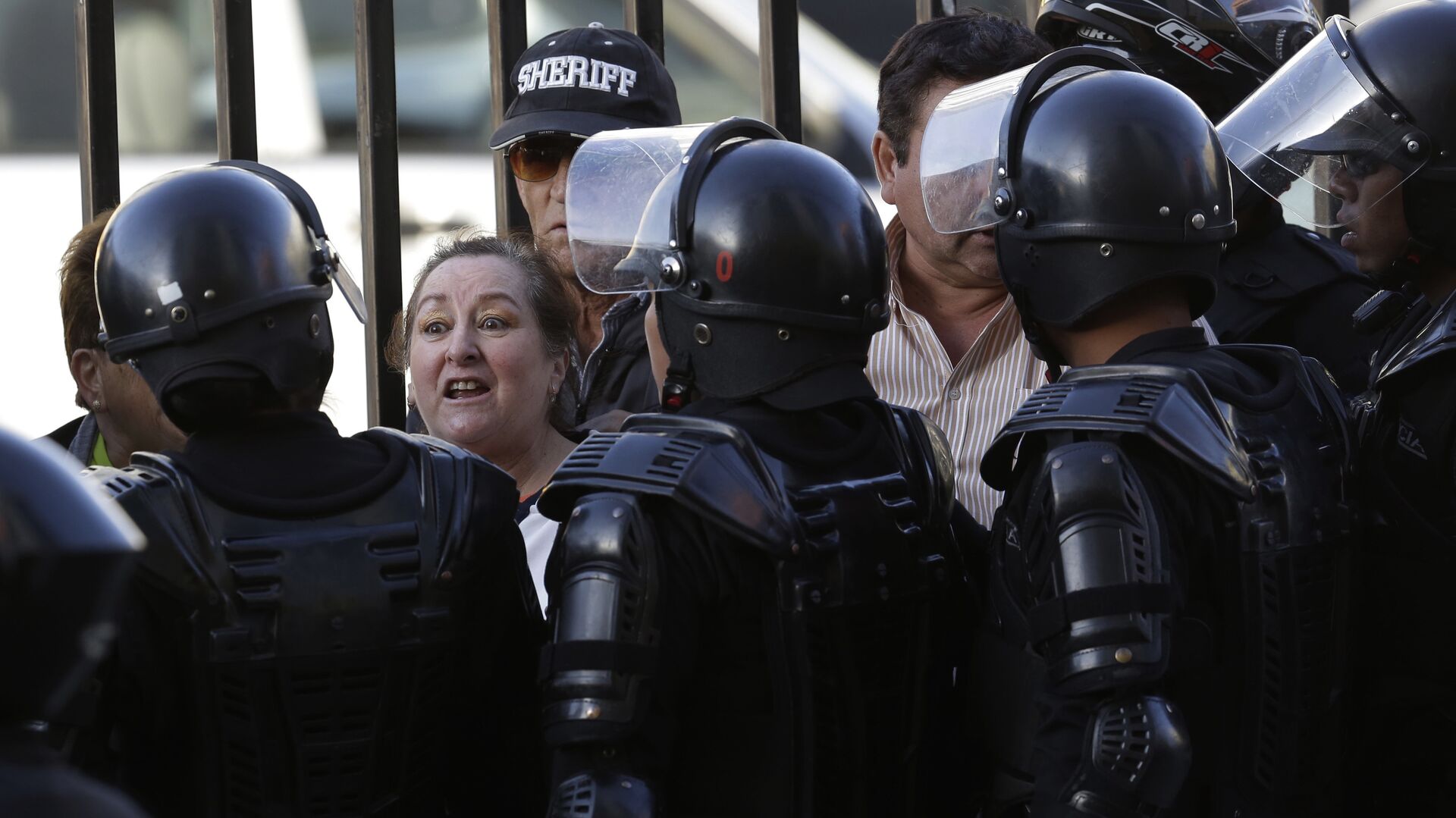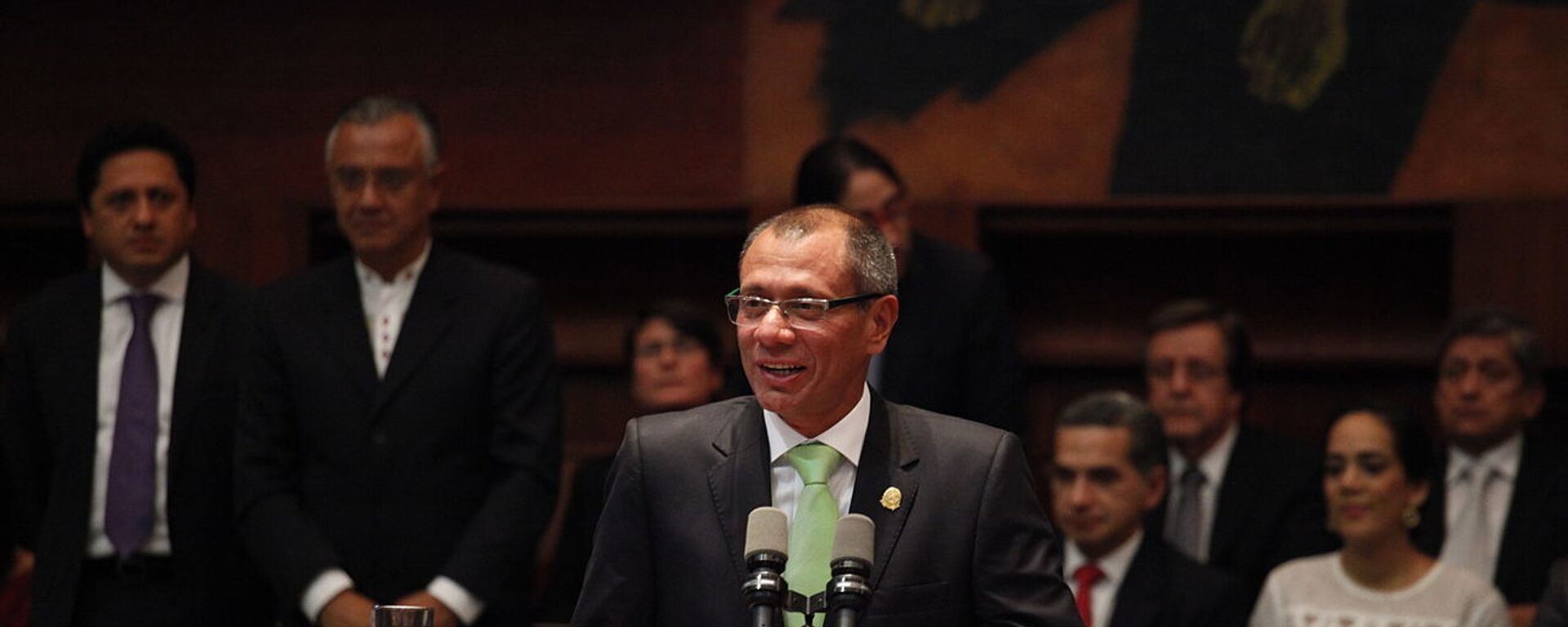Mexican Embassy Raid: Jorge Glas is ‘Ecuador's Julian Assange’

© AP Photo / Dolores Ochoa
Subscribe
Last week, Ecuadorian security forces barged into the Mexican embassy in Quito and seized former Ecuadorian Vice President Jorge Glas, drawing condemnation from UN Secretary-General António Guterres. Mexico has since severed diplomatic ties with Ecuador and requested that the UN expel the country from the international body.
In many ways, Jorge Glas is the Ecuadorian equivalent to Julian Assange, Ecuadorian journalist and editor of The Cradle Esteban Carrillo told Sputnik’s Fault Lines on Thursday.
“This man who was being persecuted, who has been made to be the ultimate evil in Ecuador, humiliated, dehumanized, [is] our own Julian Assange in many ways,” Carrillo contended.
Glas reportedly attempted suicide last week and is now on a hunger strike. He was transferred to a hospital on Tuesday and is now said to be in stable condition. Glas served as vice president of Ecuador from 2013 to 2017. He was released from prison in 2022 after serving more than four years. Glas has long maintained that the corruption charges against him are politically motivated.
Ecuador, under a previous administration, gave Julian Assange asylum in the country’s embassy in the UK, before the UK government convinced the then-Ecuadorian President Lenin Moreno to revoke his asylum.
Though the situations differ significantly: Assange is a journalist while Glas was a public official and Ecuador’s recognized government approved the UK operation to arrest Assange, the Ecuadorian connection and the fact that both events include police storming an embassy make the parallels difficult to ignore
“[The storming of the Mexican embassy] can leave [no] doubt that Jorge Glas is being persecuted politically. He is a political prisoner of the [Ecuadorian President] Daniel Noboa government, and he was a political president of [former Ecuadorian presidents] Guillermo Lasso and Lenin Moreno governments,” Carrillo explained.
“Why? Because when he was vice president, in Ecuador, we had an earthquake, a very bad earthquake, he led the reconstruction efforts in [the] province where the earthquake hit worst,” Carrillo began. “He built a park that didn’t exist before. He built a park on top of a hole in the ground. And this, according to the attorney general’s office, is corruption.”
Glas was accused of corruption and bribery related to those construction efforts. Prosecutors alleged and convicted Glas of taking bribes from a Brazilian construction company. Glas maintains that the case against him was built on “lies.” Glas was a part of the leftist Rafael Correa government.
Moreno, who was once an ally of both Correa and Glas, turned sharply right after entering office and removed Glas' powers as vice president before eventually having him arrested. Successive Ecuadorian leaders have come from the political right in the country.
“This is a man who, just like Julian Assange is hanging on by a thread, is holding onto a hope that there is a light at the end of the tunnel and now, thankfully, you have international actors,” working on behalf of Glas, Carrillo explained. “You have Mexico saying ‘We still consider him an asylee. We still consider that he has asylum with us. You [also] have the [Organization of American States] OAS saying the Ecuadorian government needs to give him safe passage to Mexico because that is what international conventions say. You violated his rights, his human rights, he needs to be in Mexico where they granted him political asylum.”
“Jorge Glas is a trophy. He was vice president for Rafael Correa during his 10 years of a leftist government in Ecuador that did so much for the country,” much in the same way Assange is for the US security state, Carrillo explained.



